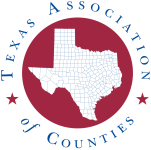News Article | May 30, 2024
AG Opinions and Requests
Attorney General Opinions
KP-0463: Addresses whether a member of the public can obtain copies of spoiled ballots on the 61st day after an election (RQ-0520-KP). The Legislature has established procedures to preserve spoiled ballots and grant public access to them. Section 66.058 of the Election Code requires that spoiled ballots be preserved in ballot box no. 4 or by another method chosen by the election records custodian for 22 months. Section 1.012 establishes spoiled ballots as public information and requires the custodian to make the ballots available to the public. This authorization allows public access to ballot box no. 4 during the 22-month period. Thus, the public can obtain copies of spoiled ballots during this time. However, personally identifiable information that could tie a voter's identity to their selections is confidential and must be redacted to protect the constitutional right to a secret ballot.
KP-0464: Addresses Health & Safety Code section 571.018 regarding payment of court filing fees and costs in a civil mental health commitment case (RQ-0521-KP). The Mental Health Code assigns responsibility for costs associated with court-ordered mental health services. Health and Safety Code subsections 571.018(a) and (b) generally make counties responsible for paying filing fees for an application for court-ordered mental health services. However, subsection 571.018(i) allows counties to require “a person” to pay filing fees if they pertain to services from a private mental hospital. Under the Mental Health Code, a “person” does not include governmental entities, meaning counties can require non-governmental medical facilities to pay application filing fees. Where a county is responsible for paying filing fees for an application for court-ordered mental health services, it need not pay such fees at the time the application is filed. However, where a county instead requires payment from a “person” pursuant to subsection 571.018(i)(1), that person must pay the fees at the time of filing.
KP-0466: Addresses the application of conflict-of-interest rules to grants awarded by the Texas Opioid Abatement Fund Council (RQ-0533-KP). In Opinion JM-671, this office concluded that the statutory predecessor to Government Code subsection 572.058(a) did not apply to contracts and so did not abrogate the common law as stated in Meyers v. Walker. Instead, JM-671 concluded that the strict conflict-of-interest rule from Meyers v. Walker governed contract formation and voided any contract entered into by an agency if a member of its governmental body had any pecuniary interest in the contract. The office has not revisited JM-671 until now. This review suggests that a court would likely decide differently today. Therefore, we hereby overrule JM-671 and its progeny to the extent they conflict with this opinion. A court would likely find that subsection 572.058(a) applies to contracts and overrides the common law. Under subsection 572.058(a), an elected or appointed officer with a conflict must disclose their interest and recuse themselves. Thus, JM-671 and subsection 572.058(a) do not prevent the Texas Opioid Abatement Fund Council from awarding grants. Instead, Council members must publicly disclose their interests in an open meeting of the Council and must refrain from deliberating or voting on matters as directed by section 572.058. Accordingly, Council members may participate in deliberations and vote on matters that do not involve their personal or professional interest. Government Code chapter 2261 provides for contracting standards and oversight for state contracting. Subsection 2261.252(e) provides that section 2261.252 applies only to a contract for the purchase of goods or services solicited through a purchase order if the amount of the purchase order exceeds $25,000. We question whether a grant award from the Council is made via a purchase order. But we do not resolve fact questions in an Attorney General Opinion and leave the determination about the application of section 2261.252 to the Council.
Requests for an Attorney General Opinion
RQ-0536: Starr County Attorney. Asks several questions relating to the whether the mayor of a Type C municipality who resigns holds over in office under article XVI, section 17 of the Texas Constitution.
RQ-0537: Hood County Attorney. Asks whether the Texas Open Meetings Act, Government Code section 551.071, authorizes discussion about hiring a law firm, and whether boilerplate language contained on a meeting notice or agenda is sufficient notice of an executive session.
RQ-0538: Fayette County Auditor. Asks questions relating to the authority of a sheriff to contract with other local governments and private entities for the off-duty work of sheriff deputies in certain circumstances.
RQ-0539: Senate Committee on Business and Commerce. Asks whether HB 1763 and HB 1919, enacted by the 87th Legislature and codified in chapter 1369 of the Insurance Code, are enforceable against a health benefit plan issuer and a pharmacy benefit manager administering the pharmacy benefits of the health benefit plan in certain circumstances.
RQ-0540: Gillespie County Attorney. Asks several questions relating to potential conflicts of interests involving attorney spouses under Rule 1.06 of the Texas Disciplinary Rules of Professional Conduct.
RQ-0541: Dimmit County Attorney. Questions the authority of a commissioners court to use county labor and equipment to open and close graves in private cemeteries.

